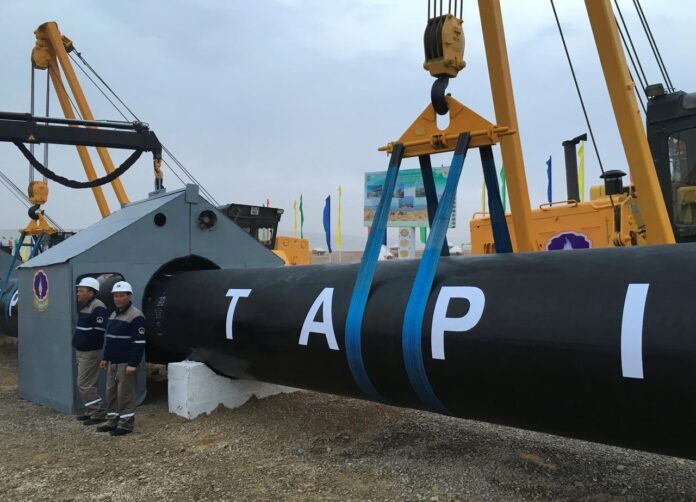Pakistan is considering withdrawing from the $10 billion Turkmenistan-Afghanistan-Pakistan-India (TAPI) gas pipeline project if India decides not to join, officials report.
Without India’s involvement, the pipeline—renamed TAP in such a scenario—would require Pakistan to pay a hefty transit fee of $500 million annually, with gas prices exceeding the cost of imported RLNG.
The News reported, citing a senior Petroleum Division official, India’s lukewarm interest in TAPI has raised concerns over the project’s sustainability for Pakistan. Without India, Pakistan would shoulder significant costs, amounting to approximately $5 billion annually for gas imports alone.
In contrast, with India’s participation, Pakistan could earn up to $800 million in transit fees, making the project economically viable.
The pipeline, initially set to transport natural gas from Turkmenistan’s Galkynysh gas field, was designed to supply 1.35 billion cubic feet of gas per day each to Pakistan and India, with Afghanistan receiving 500 million cubic feet.
However, India’s hesitance is reportedly due to security and political uncertainties in Afghanistan and Pakistan. This cautious approach mirrors India’s withdrawal from the Iran-Pakistan-India (IPI) pipeline, after which it secured a favorable energy package from the U.S.
Pakistan’s own energy demand has also decreased, with local gas consumption dropping by 150 million cubic feet monthly.
Consequently, the country struggles to consume its imported LNG, resulting in surplus supplies. Recently, Pakistan requested Qatar to defer five LNG cargoes scheduled for 2025, pushing deliveries to 2026, and is exploring options to cancel another 13 cargoes for the same year due to sluggish GDP growth and reduced industrial activity.
Meanwhile, Turkmenistan is yet to secure complete financial closure for the TAPI project, which has encountered multiple setbacks, including funding challenges, security concerns, and political instability.
Turkmenistan also requested legislative protection for its investment in Pakistan through the Foreign Investment Promotion and Protection Act (FIPPA) 2022. However, Pakistan has declined, instead offering sovereign guarantees under the Host Government Agreement.
India, in response, has shifted focus toward other energy solutions such as LNG imports, renewables, and alternative regional energy projects, citing stability and security. This shift reflects India’s growing preference for secure energy options over large-scale transnational projects, casting further uncertainty over TAPI’s future.




